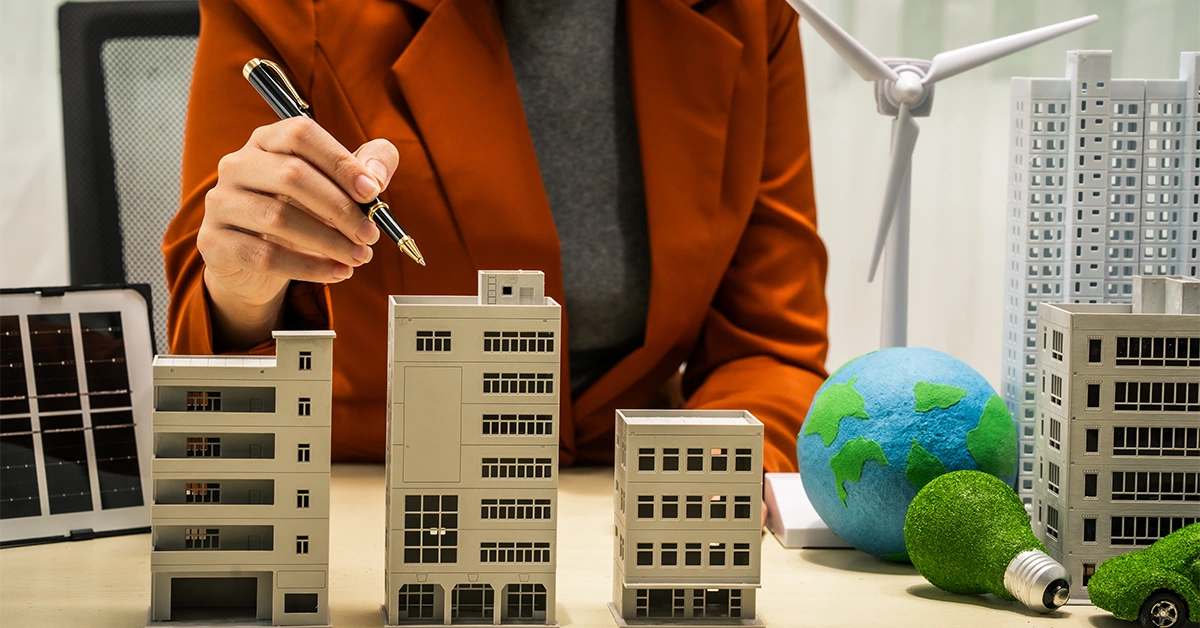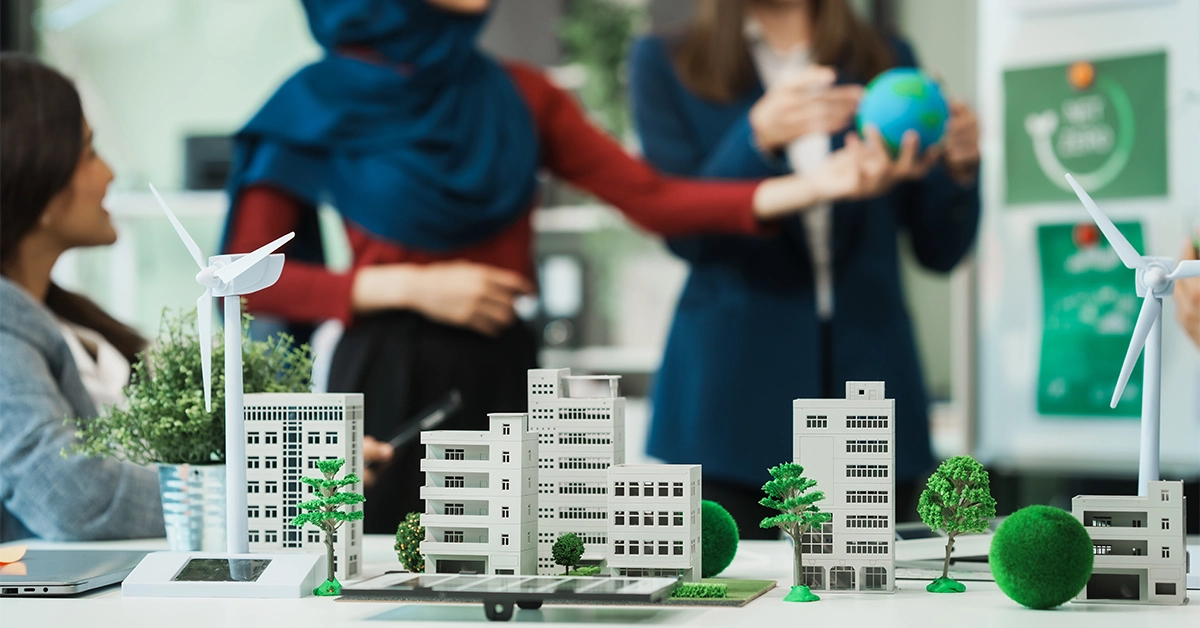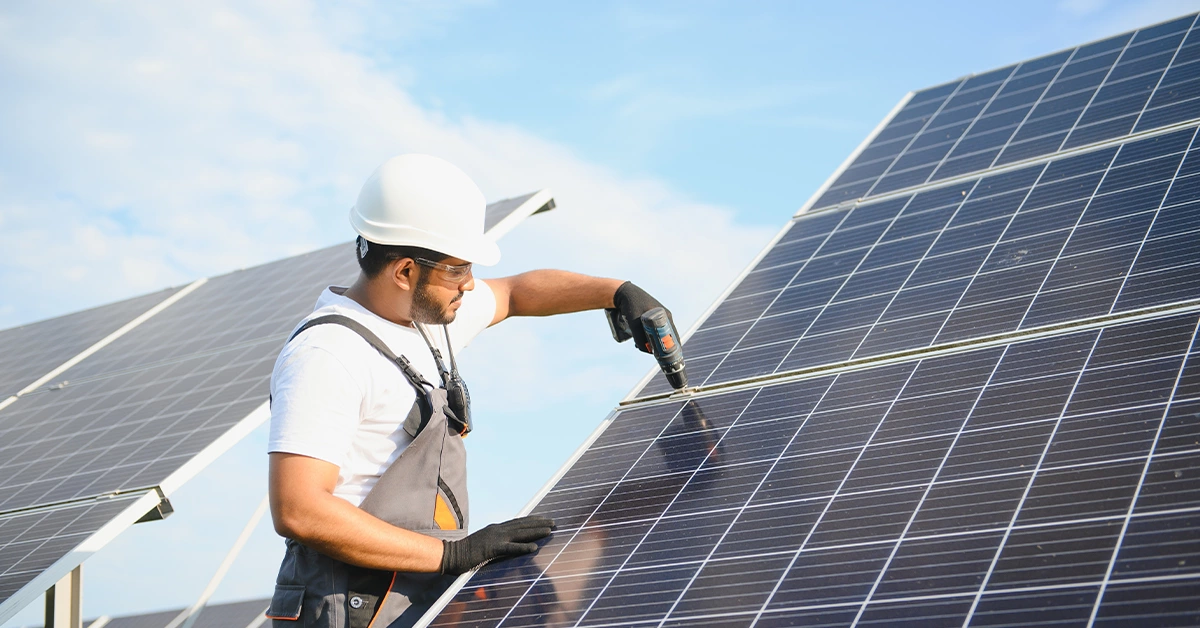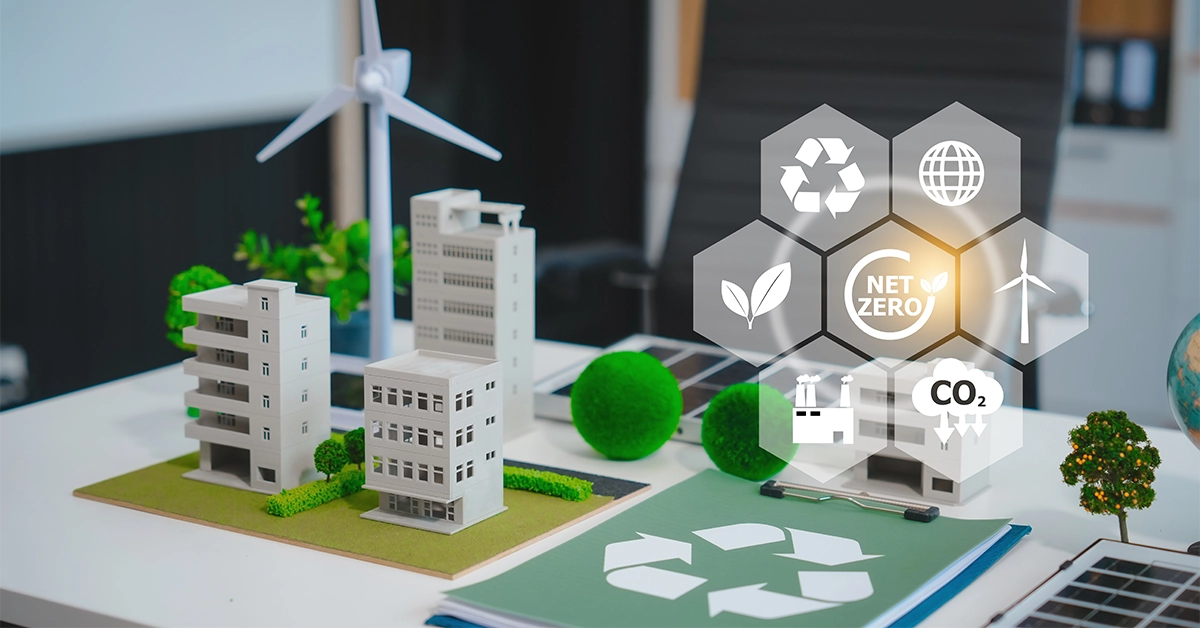In response to the global climate crisis, the world is shifting towards sustainable energy solutions and real estate is no way behind. In Dubai, sustainability in the real estate sector has become increasingly popular. With sustainability initiatives like the Dubai 2040 Urban Master Plan, the city incorporates energy-efficient technologies in urban developments.
Sustainable developments have become a new trend offering benefits like reduced carbon emissions, lower energy consumption, and a greener lifestyle. Knowing about sustainable practices is key to investing in unique projects. Scroll down to learn more.
- Key Sustainability Initiatives in Dubai
- What Sustainability Practices Are Developers Adopting in Dubai?
- Impact of Sustainable Real Estate Development on Property Investment
- FAQs
Key Sustainability Initiatives in Dubai
Dubai, known for its towering skyscrapers and lavish lifestyle, is switching to a more sustainable way of living. The shift towards sustainability in the real estate sector is to reduce the carbon footprint and promote a greener lifestyle.
The government has also introduced various sustainability initiatives that encourage sustainable development practices. Here is a brief on these initiatives and how they are contributing to Dubai’s aim of becoming the world’s leading Green City:

1. Dubai 2040 Urban Master Plan
The Dubai 2040 Urban Master Plan is one of the key initiatives for achieving sustainability in the real estate sector. The main goals of this plan include:
- Build green communities and smart cities.
- Utilise resources efficiently.
- Dedicate 60% of the total Dubai area to green spaces.
- Reduce pollution and carbon footprint.
2. Dubai Clean Energy Strategy 2050
Dubai Clean Energy Strategy 2050 is another sustainability initiative that impacts the real estate sector. Initiated in 2015, this strategy has set new benchmarks in renewable energy usage. By 2050, it aims to cater to 75% of the city’s consumption needs through renewable energy sources.
As part of its initiatives, the Dubai Land Department (DLD) works with trusted contractors to promote solar energy usage and solar panel installations.
3. Green Building Regulations and Certifications
Dubai has also introduced several Green initiatives to achieve sustainability in the real estate sector. Under this programme, the real estate developers must follow certain rules and regulations. The main aim behind this project is to reduce energy consumption, improve waste management and conserve water.
In addition, the Dubai Government has partnered with the internationally acclaimed US Green Building Council, which awards LEED certification to Net Zero energy and green buildings.
As per the Green Building Information Gateway, there are over 804 LEED for Homes-certified single-family houses. The city also ranks third globally for the number of green-certified buildings.

What Sustainability Practices Are Developers Adopting in Dubai?
The need for sustainability in Dubai’s real estate sector has been increasing rapidly. Considering this, developers are incorporating various sustainable practices into their projects. Let’s look at the most common and trending sustainability practices:

1. Energy-Efficient Technologies and Solar Energy Initiatives
Real estate developments in Dubai have seen a switch towards energy-efficient solutions. By using such smart technologies, developers are reducing energy consumption and contributing to a green lifestyle. These include:
- Renewable energy sources such as solar panels and wind energy.
- HVAC systems in residential and commercial buildings.
- LED lighting and smart grids.
Solar Energy Projects
The Dubai Government has also initiated several solar energy projects to position Dubai at the forefront of sustainable development. Some of these notable initiatives include:
- Shams Dubai: Shams Dubai supports the Dubai Clean Energy Strategy 2050. Launched by the Dubai Electricity and Water Authority (DEWA), this project encourages solar panel installations. It aims to reduce electricity consumption, slash DEWA bills and save the environment from greenhouse gas emissions.
- Mohammed bin Rashid Al Maktoum Solar Park: This project is regarded as one of the biggest solar sites across the globe. Its vision is to produce 5,000 MW of energy by the end of 2030.
2. Water Conservation
Considering Dubai’s hot climate, limited rainfall seasons and water scarcity, efficient water conservation systems are crucial. Property developers in Dubai are using the following smart water conservation practices:
- Water-Saving Fixtures: Installing showerheads, low-flow taps and dual-flush toilets to avoid water wastage.
- Rainwater Harvesting: Collecting rainwater from different surfaces, storing and utilising it for day-to-day activities.
3. Waste Management
Proper waste management is the key to a healthy environment. This is why most real estate developers focus on building disposal and recycling systems. By focusing on recycling materials, Dubai aims to reuse 75% of its construction waste.
4. Sustainable Building Materials
Real estate developers are increasingly switching to sustainable building materials such as bamboo and recycled steel. Such materials reduce carbon emissions, lower energy consumption and are beneficial in the long term.

Impact of Sustainable Real Estate Development on Property Investment
In recent years, Dubai has experienced a growing demand for sustainable homes. Here is how sustainability in the real estate sector impacts property investments:

1. Growing Demand
The demand for green communities in Dubai has been increasing dramatically. To cater to this demand, the real estate developers are incorporating sustainable technologies into most new real estate projects.
2. Increased Property Value
High demand translates to increased property value. Buyers and tenants look forward to sustainable properties and are willing to pay a premium price.
3. Lower Costs
By using energy-efficient solutions, sustainable buildings significantly reduce utility costs and contribute to long-term savings.
4. High Returns
Investors can enjoy high returns on sustainable properties, due to increased demand and lower utility costs.
5. Stands out Among Different Properties
Sustainable practices are a key differentiator in the real estate market. Most buyers and tenants prefer sustainable homes over their counterparts. With a growing number of eco-conscious buyers, sustainable properties are truly an impressive market in Dubai.
FAQs
Sustainability in the real estate sector refers to the shift towards sustainable solutions, energy-efficient technologies and an eco-friendly lifestyle.
The Dubai Clean Energy Strategy 2050 is a sustainability initiative that aims to reduce carbon emissions, encourage energy-efficient practices and promote a greener lifestyle. By 2050, it aims to derive 75% of Dubai’s total energy consumption from renewable energy sources.
The sustainability initiatives encourage real estate developers to incorporate energy-efficient solutions, sustainable materials and proper waste management systems into their projects. Short and simple—sustainability in the real estate sector is no longer a trend; it has become a necessity.
Furthermore, you can learn about smart communities in Dubai that offer a tech-driven, sustainable and comfortable lifestyle.